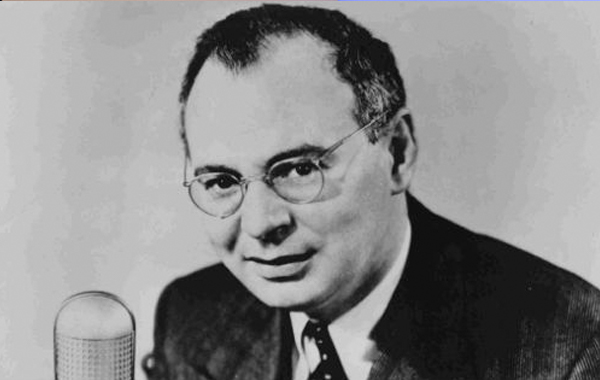Existential anxiety – the fear of not being able to master one’s life or missing the meaning of life – is widespread and can lead to great mental strain. In an interview, Dr. Manuela Vanheiden, neurobiologist, alternative practitioner for psychotherapy and OMNI hypnotherapist, explains what is behind this and how hypnosis can help with existential fears.
What is existential fear and what is behind it?
Existential anxiety describes the fear of not being able to cope with life or of losing the economic or material foundations of life. The focus here is on financial and professional existence. Here, existential fear can go hand in hand with the failure of self-employment or the insolvency of one’s own company. But the fear of losing one’s job is also closely linked to existential fear.
Older people also experience existential angst. The fear of poverty in old age or the fear of not being able to cope with life in the event of illness is particularly strong among people who are alone, i.e. who have no support from family or friends.
Existential anxiety is often a combination of different worries and is not limited to a single fear. The thought of losing your job triggers the next fear, namely of financial problems. This could mean running out of money for food, not being able to pay bills and possibly not being able to keep the apartment. Not having enough orders in your own company may not only lead to your own ruin, but it may also mean that you can no longer pay salaries to your employees. In addition to the economic consequences, feared social consequences also play a role. For example, the question of what family, friends or outsiders will think of you if the feared scenarios materialize. Or the fear of looking like a failure. Or that people turn away from you if you don’t achieve something.
In summary, those affected are afraid that something will change for the worse for them and that they cannot do anything about it, that they are helpless and powerless and will therefore be judged negatively by others. All in all, these factors can be so stressful that the positive aspects of life are no longer perceived and all thoughts revolve around anxiety.
What symptoms are associated with existential anxiety and who suffers most from existential anxiety? Have existential fears increased due to the coronavirus pandemic?
In my experience, the people who suffer most from existential angst in practice are actually self-employed people, i.e. tradespeople, entrepreneurs and freelancers. However, the coronavirus pandemic also increased the demand from employees for advice on the topic of existential fear. In my practice, I have therefore generally observed an increase in clients with existential fear. Colleagues have also confirmed this to me in discussions.
Sometimes existential fears are caused by specific triggers, for example the employer’s announcement that there will be restructuring in the company or that jobs will be cut in the near future. At the time of the coronavirus, the switch to short-term work was also an uncertainty factor. Employees did not know what would happen next. All self-employed people who were no longer allowed to work due to the measures were at a particularly high risk of developing existential fears. But even people who are pessimistic by nature and lack strong resilience can develop fears about the future and their existence without any triggers. And even in times when there is no reason to worry.
The most common symptoms are inner restlessness and restlessness. High emotional tension can also be a symptom. This often lasts throughout the day and leads to reduced resilience and the associated high irritability. Many people who suffer from existential angst are unable to rest in the evening and complain of insomnia. This can range from difficulty falling asleep and sleeping through the night to night-time panic attacks, where sufferers wake up in a cold sweat with palpitations and a tight chest or the feeling that a heavy stone is lying on them. People with existential fears tend to brood. As described above, it can happen that all thoughts revolve around the potentially failing existence and the worries and problems that presumably come with it. These negative thought spirals in particular disrupt our night’s sleep considerably.
How many people in Germany are affected?
Unfortunately, that’s not so easy for me to answer. According to various statistical surveys conducted in recent years, around 25-45% of respondents in Germany (source: Statista, Kantar Emnid) exhibit fears associated with existential anxiety, such as fear of unemployment or poverty.
What can you do about it?
You should focus on the solution and not on the fears. In the short term, it can help to break out of the situation and switch off. Self-hypnosis, meditation, sport, meeting friends, visiting parents and activities in nature can clear your head and help you to see the situation as not so bad. I advise my clients to practise mindfulness for all issues: to focus on the here and now without judging, and to accept things as they are if they cannot be changed at the moment. Mindfulness is also a valuable tool for existential fears.
If the fears are often unfounded, it also helps to actually deal with the facts and/or your sales. Quite often, people are affected for whom there seems to be no understandable reason to be seriously worried because their job is secure and things are going well at work or their turnover is sufficient to good, sometimes even very good.
If possible, you should build up a financial cushion that can help you through difficult times and give you a sense of security. A “Plan B”, an alternative, a contingency plan, can also increase the feeling of security.
How can hypnosis help to alleviate existential fears?
In principle, revealing hypnosis can of course help to permanently resolve fears in the subconscious. Fear networks that we cannot reach and influence with our consciousness, or only with a very high expenditure of energy, can be accessed and easily changed in trance. However, factors that trigger existential fears can also be changed or even completely resolved with hypnosis. For example, negative beliefs and pessimistic thinking from childhood can be released with the help of hypnosis. You can establish a sense of security in the subconscious, strengthen resources and thus also increase resilience. Hypnosis can be used to build up self-confidence, self-assurance and optimism in the subconscious.

Dr. Manuela Vanheiden is an OMNI hypnotherapist, trauma educator and trainer. She has over 10 years of experience with hypnosis and hypnotherapy. Due to her background in neuroscience, she has a special perspective on psychiatric illnesses such as anxiety, depression and trauma. www.hypnosezimmer.de




